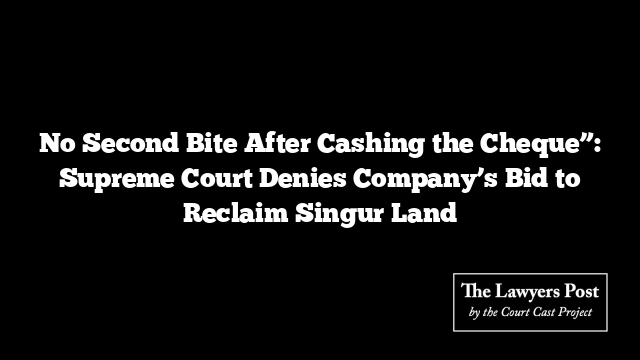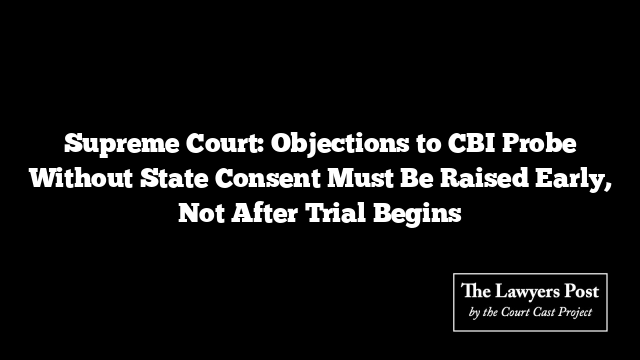The Supreme Court has shut the door on a private company’s attempt to reclaim its Singur land nearly two decades after accepting full compensation, calling the plea a case of “strategic inaction dressed as fairness.”
A Bench of Justices Surya Kant and Joymalya Bagchi overturned the Calcutta High Court’s order that had directed the restoration of land to Santi Ceramics Pvt. Ltd., ruling that the company’s belated claim had no legal footing.
The Court underscored that once compensation has been accepted and the acquisition proceedings concluded, there’s no going back. “After taking possession and receiving the award, no delayed grievance can be entertained,” the Bench said, noting that the company had “slept on its rights for nearly a decade.”
The dispute traces back to 2006, when over 1,000 acres in Singur were acquired for Tata Motors’ Nano project. Among them were 28 bighas belonging to Santi Ceramics. The company objected to the acquisition under Section 5-A of the Land Acquisition Act, 1894, but once its objections were dismissed, it accepted ₹14.55 crore in compensation — without any further protest or legal challenge.
Years later, in 2016, the Supreme Court in Kedar Nath Yadav v. State of West Bengal struck down the entire Tata Nano land acquisition, finding the process had disregarded farmers’ rights and inflicted disproportionate harm on cultivators. It ordered that the land be restored to “original landowners and cultivators.”
That’s when Santi Ceramics resurfaced, arguing it too should benefit from the judgment. The Calcutta High Court agreed — until the State of West Bengal challenged the decision before the apex court.
Setting aside the High Court’s order, the Supreme Court drew a sharp distinction between those who fought for their rights and those who stayed silent until it suited them. “Permitting industrial entities to claim restoration benefits from litigation they chose not to pursue would establish an undesirable precedent,” Justice Kant wrote. “It would reward passivity and opportunism, not diligence.”
The Bench made it clear that the 2016 Kedar Nath Yadav verdict was never intended as a blanket remedy. It applied specifically to farmers and small cultivators who had contested the process — not to corporate beneficiaries who accepted compensation and moved on.
“The earlier quashing of the acquisition was relief in personam, not in rem,” the Court emphasized. “It benefited only those who actively challenged the process, not every entity whose land happened to fall within the same acquisition.”
The judgment criticized Santi Ceramics for attempting to “free-ride” on a public interest litigation it had no part in. “Despite having ample resources and legal avenues, it chose inaction. Now, after watching disadvantaged communities fight and win, it seeks to reap their harvest — a claim this Court cannot entertain,” the Bench remarked.
With that, the Supreme Court allowed the State’s appeal, restoring the finality of the land acquisition and closing another chapter in the long and politically charged saga of Singur.




